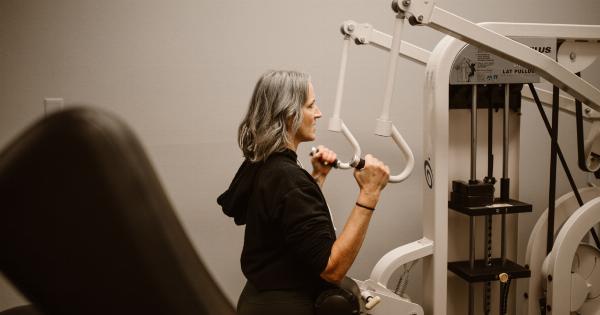Endometriosis is a prevalent gynecological condition where the tissue lining the uterus grows outside of it, causing pain, inflammation, and other uncomfortable symptoms.
While there is no specific diet that can cure endometriosis, making certain dietary choices can help manage the symptoms and improve overall well-being. In this article, we will discuss foods to eat and avoid if you have endometriosis.
Foods to Eat for Endometriosis
1. Fruits and vegetables:.
Eating a variety of fruits and vegetables rich in antioxidants can help reduce inflammation in the body. Include colorful options such as berries, leafy greens, broccoli, and sweet potatoes in your diet.
2. Omega-3 fatty acids:.
Fatty fish, such as salmon and sardines, is a great source of omega-3 fatty acids. These healthy fats have anti-inflammatory properties that can help alleviate endometriosis symptoms.
If you are vegetarian or vegan, consider adding flaxseeds, chia seeds, and walnuts to your meals.
3. Whole grains:.
Whole grains like brown rice, quinoa, and whole wheat bread provide fiber and essential nutrients. They also help regulate hormone levels and maintain a healthy weight, which is crucial for managing endometriosis.
4. Lean proteins:.
Opt for lean protein sources such as chicken, turkey, tofu, and legumes. These foods are rich in iron and amino acids necessary for tissue repair and overall health.
5. Herbal teas:.
Sipping on herbal teas like chamomile or ginger tea can provide relief from pain and discomfort associated with endometriosis. Additionally, some herbal teas have anti-inflammatory properties and can aid digestion.
Foods to Avoid for Endometriosis
1. Foods high in trans fats:.
Avoid foods that contain trans fats, such as processed snacks, fried foods, and baked goods. Trans fats contribute to inflammation and may worsen endometriosis symptoms.
2. Red meat and processed meats:.
Limit your intake of red meat and processed meats like bacon and sausages. These foods are high in saturated fats, which can increase inflammation in the body.
3. Dairy products:.
Some women with endometriosis find that reducing or eliminating dairy products helps alleviate symptoms. If you experience increased pain or inflammation after consuming dairy, try switching to dairy alternatives like almond milk or coconut milk.
4. Gluten:.
Gluten, a protein found in wheat and certain grains, can worsen inflammation in some individuals. If you suspect gluten aggravates your endometriosis symptoms, try a gluten-free diet and monitor your body’s response.
5. Caffeine and alcohol:.
Both caffeine and alcohol can contribute to estrogen dominance, which can exacerbate endometriosis symptoms. Limit your intake of coffee, tea, sodas, and alcoholic beverages.
6. High-estrogen foods:.
Avoid foods rich in estrogen or that mimic estrogen in the body, such as soy products, processed foods, and non-organic fruits and vegetables treated with pesticides.
Lifestyle Tips for Endometriosis
1. Regular exercise:.
Engaging in regular physical activity can help reduce inflammation, improve circulation, and release endorphins, which can relieve pain and boost mood.
2. Stress management:.
Chronic stress can worsen endometriosis symptoms. Practice stress-management techniques such as relaxation exercises, meditation, and prioritizing self-care.
3. Supplements:.
Speak to your healthcare provider about potential supplements that may help manage endometriosis symptoms, such as omega-3 fatty acids, magnesium, and vitamin D.
4. Adequate rest:.
Getting enough quality sleep is essential for overall health and managing symptoms of endometriosis. Establish a regular sleep routine and create a comfortable sleep environment.
5. Stay hydrated:.
Drinking an adequate amount of water each day helps maintain optimal bodily functions and can aid in reducing bloating and inflammation.
Conclusion
While there is no one-size-fits-all diet for endometriosis, making certain dietary choices and lifestyle modifications can significantly improve symptoms and quality of life.
Incorporate anti-inflammatory foods, focus on nutrient-dense meals, and avoid foods that may worsen inflammation. Remember to consult with a healthcare professional for personalized guidance in managing endometriosis.






























